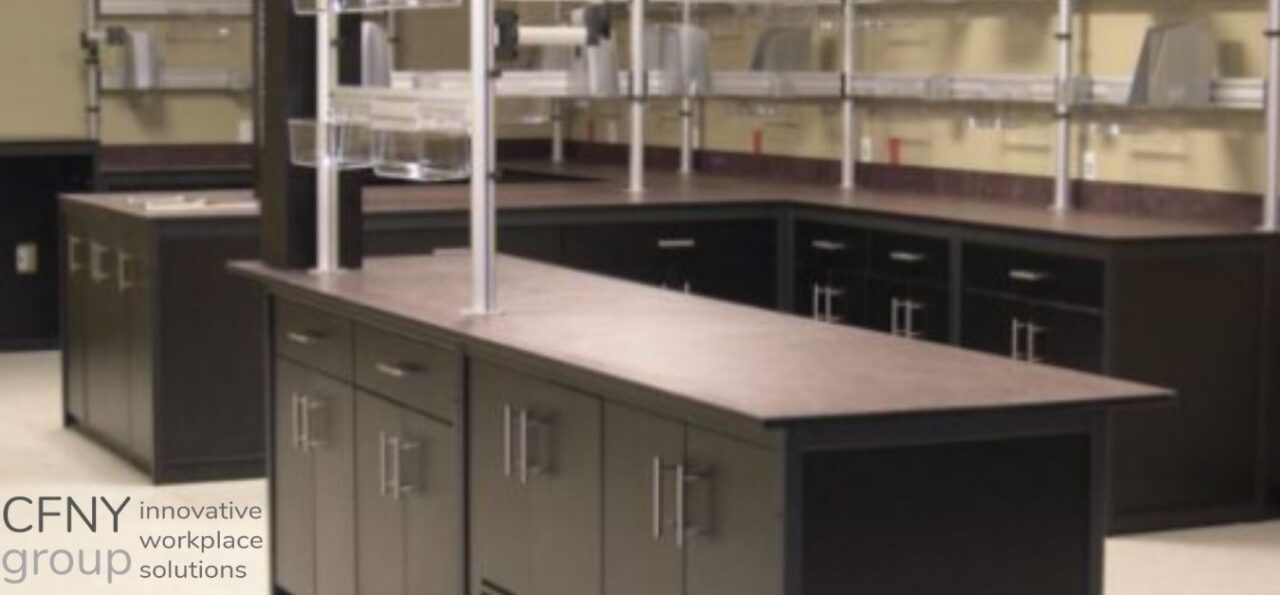Millwork vs Laminate Modular Casework
Deciding what kind of storage and cabinetry belongs in your business, classroom, lab, hospital, or office can be a doozy. When it comes down to storage solutions, you will have to decide between millwork or laminate modular casework. But what are the key differences? Thankfully, we have made a list.
What are millwork and laminate modular casework?
Millwork encompasses all woodwork that is produced in a mill. It is custom made, meaning it is made with a specific space in mind. Later, it is built into that space. As a rule of thumb, millwork products are often made based on need and exact design requirements.
Don’t let the long name “laminate modular casework” scare you off. The terms “laminate” and “modular” are types of casework. The term “modular” refers to the multiple modules used whereas “laminate” is simply the plastic overlay used as a finish. Unlike millwork, casework is not defined by where it is made. Instead, casework refers to the making of boxes.
Casework comes in a variety of configurations, materials, and finishes, making one of the key differences that casework is not custom made. Think of modular casework as like buying something from IKEA; items are made en masse with a variety of specifications that can be assembled in many different ways.
What are they used for?
The number of products included under the category “millwork” is rather large. Anything from doors, molding, trim, wall paneling, door frames, window casing, crown molding, and more can be considered millwork.
Because casework refers to the making of boxes, it consists mainly of box-shaped products such as storage cabinets and bookcases. It is often found in offices, laboratories, hospitals, pharmacies, and schools.
What are the costs like?
Millwork is custom made, so it is typically more expensive. With built-in millwork, you have to pay for time-consuming manual labor whereas casework can be quickly produced by a machine in a factory. For this reason, modular casework is often more precise than millwork because the cuts and measurements are made by computer-generated machinery.
Laminate modular casework also tends to be cheaper because it takes less time to install. It does not have to be built directly into the space; it can be partially assembled beforehand. In terms of the cost over time, casework usually costs less because the parts are readily available and easy to be reconfigured, making replacement and relocation easier.
Are there any other benefits of one over the other?
Laminate modular casework carries a lifetime warranty against product defects. When it comes down to it, some of the benefits of laminate modular casework include cost-savings, easy availability, and design flexibility.
If you are looking to install some storage and cabinetry in your business, classroom, lab, hospital, or office, CFNYgroup is here to help! CFNYgroup offers a wide selection of products such as lab casework, storage shelving, demountable partition wall systems, locking technologies, and more. Don’t hesitate to call 212.352.0030 for more information or visit CFNYgroup online at https://cfnygroup.com/.


